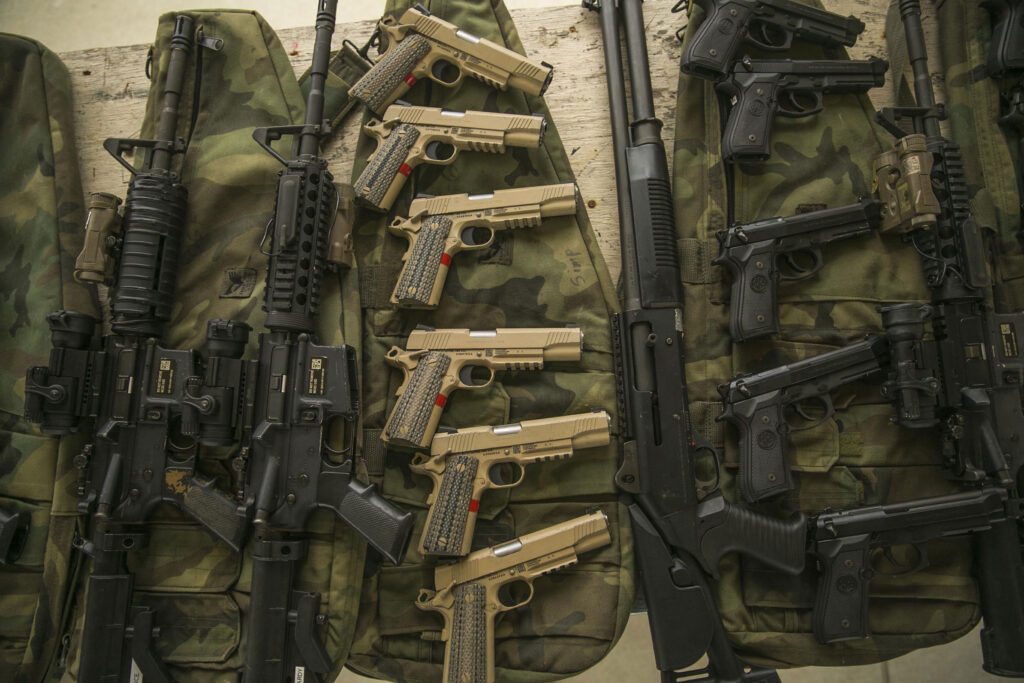In the northeastern state of Nagaland, authorities have announced a ban on the carrying of arms in certain districts. The decision, which comes amidst efforts to promote stability and curb violence in the region, underscores the importance of proactive measures in maintaining law and order.
Nagaland, with its rich cultural heritage and diverse ethnic communities, has long grappled with issues of insurgency, militancy, and inter-tribal conflicts. The proliferation of arms and the presence of armed groups have contributed to a sense of insecurity and instability in certain districts, hampering the region’s socio-economic development and impeding efforts towards peacebuilding.
The ban on carrying arms in select districts of Nagaland represents a significant step towards addressing these challenges. By restricting the possession of weapons in public spaces, authorities aim to mitigate the risk of violence, deter criminal activities, and create an environment conducive to peace and prosperity.
The decision to implement the ban reflects a comprehensive approach to security and conflict resolution in Nagaland. It acknowledges the multifaceted nature of the region’s challenges and seeks to address underlying issues that perpetuate violence and unrest. Moreover, by targeting specific districts where the prevalence of armed activities is higher, the ban is tailored to local contexts and priorities.
The ban on carrying arms is not intended to infringe upon the rights of law-abiding citizens but rather to safeguard the interests of the community as a whole. It is a proactive measure aimed at promoting public safety, protecting human rights, and upholding the rule of law. By limiting the proliferation of weapons, authorities can reduce the likelihood of armed confrontations and create space for dialogue and reconciliation.
Furthermore, the ban sends a strong message about the commitment of the state government to maintaining peace and stability in Nagaland. It underscores the importance of collaborative efforts between the government, security forces, civil society, and local communities in addressing security challenges and building a more secure and prosperous future for all residents.
However, while the ban on carrying arms is a significant step forward, it is essential to complement such measures with holistic approaches to conflict resolution and peacebuilding. This includes addressing underlying grievances, promoting dialogue and reconciliation, and fostering socio-economic development in conflict-affected areas.
Moreover, effective implementation and enforcement of the ban will be crucial to its success. Authorities must ensure clear guidelines and mechanisms for compliance, as well as transparency in the application of the ban. Additionally, efforts should be made to raise awareness among the public about the rationale behind the ban and its implications for community safety and security.
In the long term, sustainable peace in Nagaland will require concerted efforts to address the root causes of conflict and build inclusive and resilient communities. This includes promoting good governance, strengthening institutions, empowering marginalized groups, and fostering a culture of peace and tolerance.
The ban on carrying arms in select districts of Nagaland represents a significant milestone in the region’s journey towards peace and stability. It is a testament to the resilience and determination of the people of Nagaland to overcome the challenges of violence and conflict and build a brighter future for generations to come.
As Nagaland continues on its path towards peace and development, it is imperative that all stakeholders remain committed to upholding the principles of peace, justice, and reconciliation. By working together towards common goals and embracing the values of dialogue, cooperation, and respect for human rights, Nagaland can realize its full potential as a beacon of peace and prosperity in the northeastern region of India.

